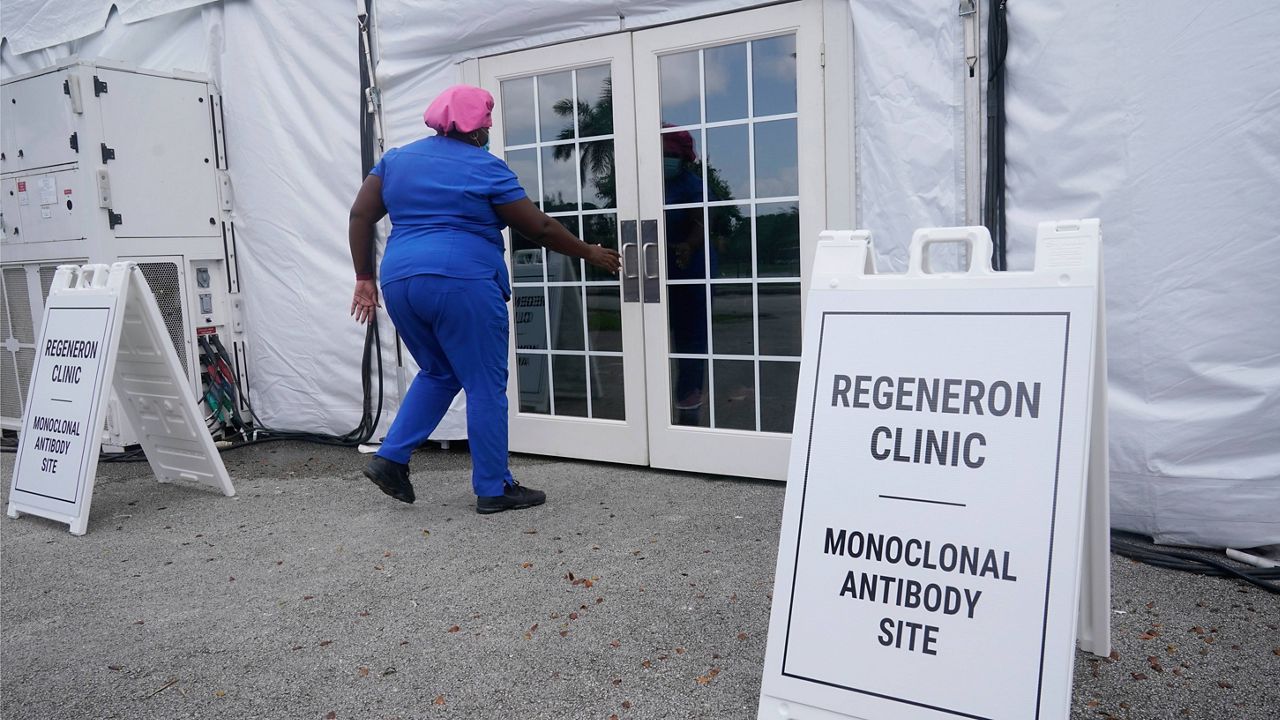The U.S. government says it has halted distribution of two of the three available COVID-19 monoclonal antibody treatments because they are not sufficiently effective against the omicron variant.
What You Need To Know
- The U.S. government says it has halted distributing two of the three available COVID-19 monoclonal antibody treatments because they are not sufficiently effective against the omicron variant
- The Office of the Assistant Secretary for Preparedness and Response, or ASPR, announced the pause in a statement Wednesday
- The Food and Drug Administration released data showing that it is unlikely the therapeutics from Regeneron and Eli Lilly retain activity against omicron
- However, a similar treatment developed by GlaxoSmithKline and Vir Biotechnology , called sotrovimab, does appear to retain activity against the variant, the FDA said
The Office of the Assistant Secretary for Preparedness and Response, or ASPR, announced the pause in a statement Wednesday.
The Food and Drug Administration released data showing that it is unlikely the therapeutics from Regeneron and Eli Lilly retain activity against omicron. However, a similar treatment developed by GlaxoSmithKline and Vir Biotechnology, called sotrovimab, does appear to retain activity against the variant, the FDA said.
According to the latest data from the Centers for Disease Control and Prevention, omicron accounts for 73% of new cases in the U.S.
The ASPR said the pause is pending updated data from the CDC.
“Shipments of sotrovimab did resume this week, and delivery of 55,000 doses of product has begun,” the ASPR statement said. “An additional 300,000 doses of sotrovimab will be available for distribution in January.”
Monoclonal antibodies are lab-produced molecules that act as a substitute for antibodies that can restore, enhance or mimic the immune system’s attack on cells. Regeneron’s antibody cocktail made headlines when it was administered to former President Donald Trump after he was infected by COVID-19 last year.
The treatments are given via subcutaneous injection, typically to at-risk or immunocompromised patients who tested positive in order to prevent severe illness.
Regeneron acknowledged on Dec. 16 that its antibody treatment had “diminished potency against omicron.” And a spokesperson for Eli Lilly told WXIN-TV in Indianapolis earlier this week that its analysis showed its treatment had “reduced neutralization activity” against the variant.
Vir Biotechnology CEO George Scangos told The New York Times he believes sotrovimab is more resilient because instead of basing it on the blood of COVID-19 survivors, researchers identified an antibody in the blood of a survivor from the 2003 SARS epidemic that also protected against COVID-19. SARS and COVID-19 are caused by related coronaviruses, and researchers believe the antibody may attach itself to a part of the virus that has evolved very little over time.
While the federal government is working to increase the supply of sotrovimab available, losing the Regeneron and Eli Lilly therapeutics is at least a temporary blow to COVID-19 treatment options at a time when cases are surging again. Nearly 68,000 doses of monoclonal antibodies were administered last week, according to the Department of Health and Human Services.
Dr. Bob Wachter, chairman of the Department of Medicine at University of California San Francisco, told The Times earlier this week that it’s a reminder that people who don't take precautions and believe there will be treatment options if they get sick are taking a gamble.
“If you have chosen to be less safe than you might have been, either because of your choice of vaccines or your choice of masking, it’s a riskier proposition than it would have been a couple weeks ago,” he said.
The FDA and CDC this week approved two COVID-19 pills, one by Pfizer and the other by Merck. But those will be in limited supply at first.
The ASPR said it is possible the Regeneron and Eli Lilly antibody treatments could still be administered in communities where the delta variant remains the dominant strain.



